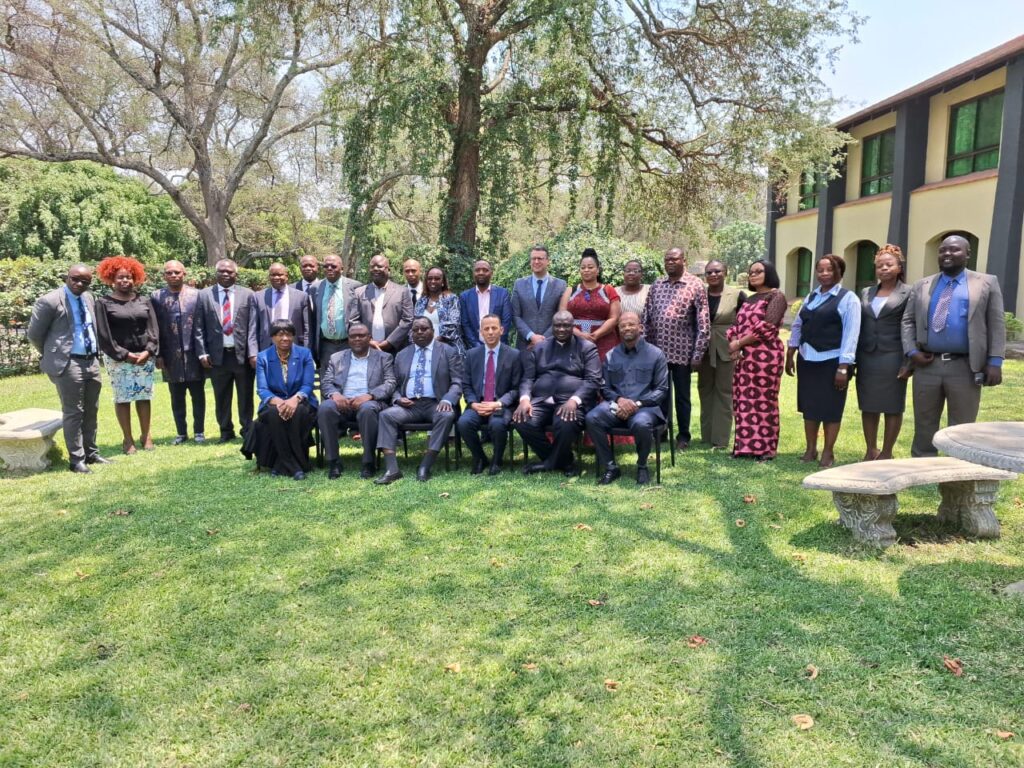
Lusaka, Zambia Thursday 23 October 2025: Under their Joint Industrialization Programme, Zambia and Zimbabwe are set to strengthen their economic cooperation by establishing a Common Agro-Industrial Park (CAIP). This initiative aims to promote industrial development, increase intra-regional trade, and enhance food security in the two countries.
On 20-21 October 2025, the COMESA Secretariat, led by Assistant Secretary General for Programmes, Amb. Dr. Mohamed Kadah facilitated a High-Level Meeting of Permanent Secretaries on the CAIP in Livingstone, Zambia. This meeting brought together Permanent Secretaries in charge of Industry, Agriculture and Finance as well as senior government officials from both countries, representatives from regional and international organizations, and financiers, to discuss the implementation of the CAIP project.
The CAIP is anchored in the Common African Agro-Parks Programme (CAAPs), an initiative under the Comprehensive Africa Agriculture Development Programme (CAADP) and the African Union’s Agenda 2063. The project is expected to enhance agricultural transformation, promote industrialization, and improve livelihoods in the region.
In his opening remarks, ASGP Kadah commended the two Member States for collaborating in the flagship programme under CAAPs. He stated that the CAIP project has a potential to deliver impact to both Member States such as job creating, innovation and promoting regional integration.
Sharing his remarks, the PS for Industrialisation and Investment of Zambia, Mr Crusivia Hichikumba expressed his gratitude to the COMESA Secretariat for convening the meeting and continuing to support the two Member States. He reaffirmed Zambia’s commitment to the implementation of CAIP. To demonstrate this, Zambia will provide resources such as staff and office space for CAIP.
The Principal Secretary at the Ministry of Industry and Trade of Zimbabwe, Dr Thomas Wushe reiterated the government’s commitment to CAIP project. He stated that given that CAIP is a flagship project of the African Union, the government will ensure it becomes a success.
The meeting focused on several key issues, including the CAIP roadmap, resource mobilization for pre-implementation, site identification, and institutional arrangements. The two countries also discussed ways to leverage funding from development partners and financial institutions.
The establishment of the CAIP is seen as a significant step towards promoting economic integration and cooperation between Zambia and Zimbabwe. The project is expected to generate new opportunities for industrial development, job creation, and poverty reduction in the region.
With the CAIP, Zambia and Zimbabwe are poised to unlock new potential for economic growth and development, while strengthening their bilateral relations and contributing to the regional integration agenda.

